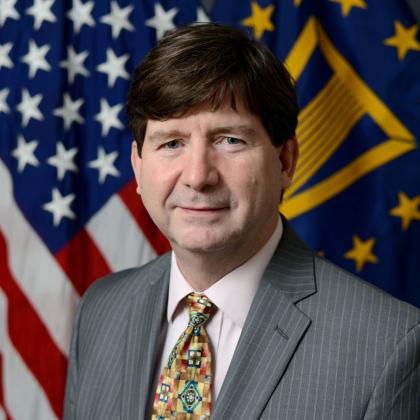OUSD(R&E) Looking To Expand AI Implementation
Office of the Undersecretary of Defense for Research and Engineering (OUSD(R&E)) officials expect the organization to broaden the usage of artificial intelligence (AI), especially in areas that individuals might not expect.
An example of this is in the realm of advanced materials, according to Jeffrey Singleton, deputy assistant secretary of defense for science and technology futures in the OUSD(R&E). Singleton claims that over the last five years, the United States has steadily fallen behind its adversaries in the research and development of advanced materials, along with the creation of critical minerals, a trend that AI can help reverse.
“You hear about critical minerals and rare earth elements, but it’s not just about minerals; it’s also about materials,” Singleton said at TechNet Emergence in Reston, Virginia. “Added to that, their supply chain vulnerabilities [are something that] the recent trading tensions have made glaringly evident. The delivery of critical defense and commercial technologies faces a higher risk in the near end of our terms. AI can help us turn those tables.”
“[Applying] integrated AI and related technology accelerators, like automation, into material research and development workflows would dramatically shorten the existing decades-long development cycles and allow the U.S. to reshore strategic parts of the supply chain. AI will also be the key to the fast-tracking breakthroughs to the next generation of materials needed to build the next generation of systems and platforms.”
Additionally, AI is beneficially impacting the biotechnology field. Crews are working to implement AI to assist in catching sicknesses or predicting illness spikes, among other use cases, according to Singleton. To accomplish this, personnel are integrating massive amounts of biological data into AI and machine learning models to fuel biologically related systems.
“AI-driven biotechnology not only revolutionized vaccine development, disease sub-cases and outbreak detection, but it could also fortify the defense industrial supply chains and deliver immediate capabilities like sustainable aviation tools and materials for producing energetics for munitions, which are artificial. The fusion of AI in biotechnology is still an invasive area for the Department of Defense, but there are some promising areas underway.”
AI is also expected to help propel forward the creation of new materials that are required when constructing the next generation of systems and platforms, especially in explosives, energetics, warfighter protection and quantum science, according to Singleton.
These new areas of interest will build on the existing use cases that AI has already proven to help. Singleton offered some examples of these, including automated target recognition and AI-powered unmanned systems functional in any domain.

The delivery of critical defense and commercial technologies faces a higher risk in the near end of our terms. AI can help us turn those tables.
However, the advanced AI systems that officials want to achieve all of these tasks will not come to fruition without challenges. The models must be exposed to vast amounts of data, and they will need access to high-speed connectivity capabilities, according to Singleton.
OUSD(R&E) leaders want to see the different sectors team up to help conquer these difficulties.
“I do believe in partnerships between government, academia and international partners, and I believe in every possible pathway to make that partnership work,” Singleton said. “Not just the big industry primes working with engineering managers and product managers, but small business programs as well.
TechNet Emergence is organized by AFCEA and supported by the U.S. Department of Defense, The MITRE Corporation and the National Science Foundation. SIGNAL Media is the official media of AFCEA International.



Comments